How emotional regulation impacts decision-making in sobriety
The crucial role of emotional control in sustaining sobriety
Understanding the nexus between emotion, decision-making, and recovery
Emotional regulation is fundamental in addiction recovery, influencing how choices are made, how stress is managed, and how individuals maintain sobriety long-term. This article explores the ways in which emotional states impact decision-making, the importance of emotional regulation, and practical strategies to enhance emotional control during recovery.
The impact of emotional states on decision-making
What is the impact of emotional states on decision-making?
Emotional states play a crucial role in how individuals make decisions, especially during recovery from substance use disorders (SUDs). They influence motivation, help generate rapid assessments, and act as signals rooted in survival instincts. When emotions are well-understood and properly regulated, they can enhance decision quality by offering valuable insights and prioritizing safety.
In contrast, unmanaged or overwhelming emotions such as anger, fear, or anxiety can cloud judgment. This often leads to impulsive choices, biased reasoning, or risky behaviors, which can be detrimental in the context of sobriety. For individuals with SUDs, emotional dysregulation frequently triggers cravings and relapse.
Developing emotional intelligence and mindfulness skills helps individuals recognize and reframe their emotional responses. These tools empower people to temper impulsive reactions and integrate both emotional and rational considerations into their decision-making process.
By understanding the intertwined influence of emotion and cognition, individuals in recovery can make more balanced decisions. This approach supports long-term sobriety by reducing impulsivity, managing triggers, and fostering healthier interpersonal relationships.
Why emotional regulation is essential in recovery from addiction
Why is emotional regulation important in addiction recovery?
Emotional regulation plays a crucial role in overcoming addiction because many individuals turn to substances to cope with overwhelming feelings such as stress, anxiety, depression, or trauma. When emotions are unregulated, they can lead to impulsive behaviors, cravings, and relapse.
Research shows that people with substance use disorders (SUDs) have significant difficulties managing their emotions, as indicated by higher scores on the Difficulties in Emotion Regulation Scale (DERS). These individuals often struggle with emotion regulation across various aspects, especially in strategies and impulse control.
Developing strong emotional regulation skills helps individuals recognize emotional triggers, reframe negative thoughts, and respond healthily to challenging situations. Techniques like mindfulness, cognitive-behavioral therapy (CBT), dialectical behavior therapy (DBT), emotion-focused therapy (EFT), and expressive arts therapy are used to teach these skills.
By managing emotions more effectively, individuals become better equipped to handle cravings and emotional distress, reducing their reliance on substances as a coping mechanism. This internal resilience not only supports sobriety but also enhances overall well-being.
Furthermore, addressing underlying emotional issues can mitigate the root causes of addiction. For example, trauma or unresolved emotional pain often contribute to substance dependence. Therapeutic interventions aim to uncover and heal these issues, resulting in more stable emotional health.
In sum, mastering emotional regulation is vital for sustaining recovery because it decreases impulsivity and cravings, helps control emotional reactions, and fosters healthier life choices. All these factors contribute to long-term sobriety and improved quality of life.
The role of emotional intelligence in maintaining sobriety
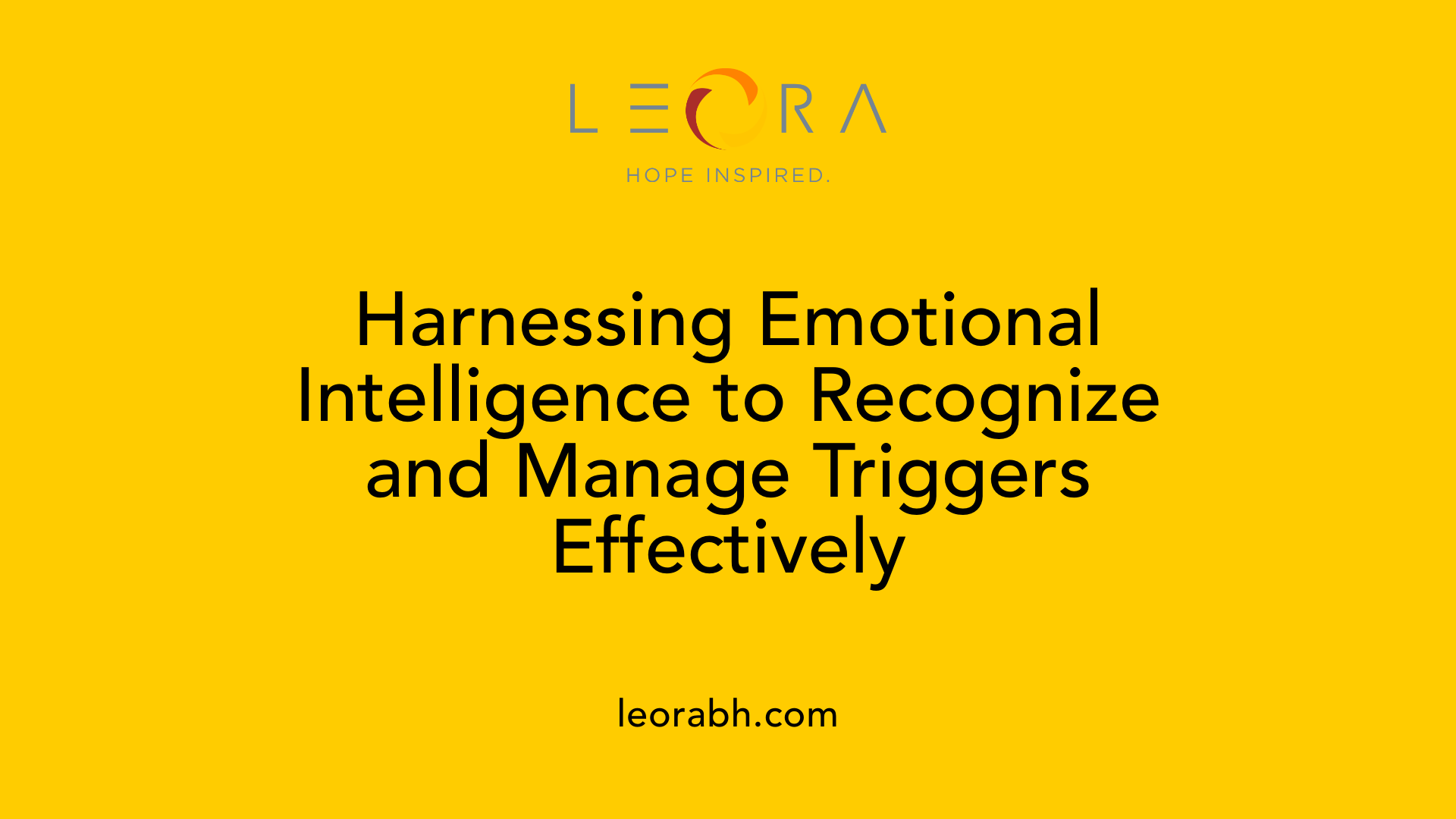
Recognizing and understanding emotions
Emotional intelligence (EI) is the ability to identify, comprehend, and interpret our own emotions as well as the emotions of others. In recovery from substance use disorders, recognizing and understanding emotions is fundamental because intense or overwhelming feelings often trigger substance cravings. Individuals with high EI can distinguish between different emotional states—such as stress, anger, or sadness—and comprehend their sources. This awareness allows them to respond thoughtfully instead of reacting impulsively, reducing the risk of relapse. Techniques like mindfulness and emotional awareness exercises are commonly used to develop this skill.
Coping with triggers and stress
One of the most critical aspects of maintaining sobriety is managing triggers—situations, people, or emotions that provoke cravings. Emotional regulation, a component of EI, equips individuals with healthier strategies to cope with stress and adverse emotional states. Instead of turning to substances for relief, they learn to pause, breathe, and employ techniques like cognitive reframing or distress tolerance. For example, mindfulness practices enable individuals to observe their emotions non-judgmentally, which diminishes impulsivity and promotes resilience. Building these skills helps create a buffer against emotional upheaval, a common pathway to relapse.
Enhancing interpersonal relationships
Strong, supportive relationships are vital in sustaining sobriety. EI enhances interpersonal skills such as empathy, active listening, and effective communication. These abilities foster healthier interactions, reduce conflicts, and facilitate the building of a supportive recovery community. When individuals understand their own emotions better, they are more capable of expressing needs and boundaries in a constructive manner. Improved relationships provide emotional support, accountability, and encouragement—factors proven to increase the likelihood of long-term recovery. Through therapies like Dialectical Behavior Therapy (DBT) and cognitive-behavioral strategies, individuals learn to strengthen their emotional and social bonds.
Overall importance in recovery
High emotional intelligence supports sobriety by enabling individuals to manage their emotions proactively and develop healthier responses to life's challenges. It helps reduce risky behaviors linked to poor impulse control and emotional dysregulation. Moreover, EI nurtures resilience, motivation, and a sense of connectedness—all essential elements in overcoming addiction. Developing these skills through therapy, mindfulness, and self-awareness activities can significantly improve treatment outcomes and sustain long-term recovery.
| Aspect of EI | Role in Sobriety | How it Supports Recovery | Techniques to Improve |
|---|---|---|---|
| Emotional Recognition | Identifies emotional states | Prevents impulsive reactions | Mindfulness, journaling |
| Emotional Regulation | Manages intense feelings | Reduces relapse triggers | Cognitive reframing, distress tolerance |
| Empathy & Communication | Builds support networks | Strengthens relationships | Active listening, role-playing |
| Stress Management | Handles triggers & stress | Minimizes emotional upheaval | Meditation, exercise |
Understanding and cultivating emotional intelligence is crucial for anyone seeking lasting sobriety. It empowers individuals to navigate emotional challenges, enhance their relationships, and sustain motivation—foundations that support a successful recovery journey.
How emotional regulation improves decision-making capacity
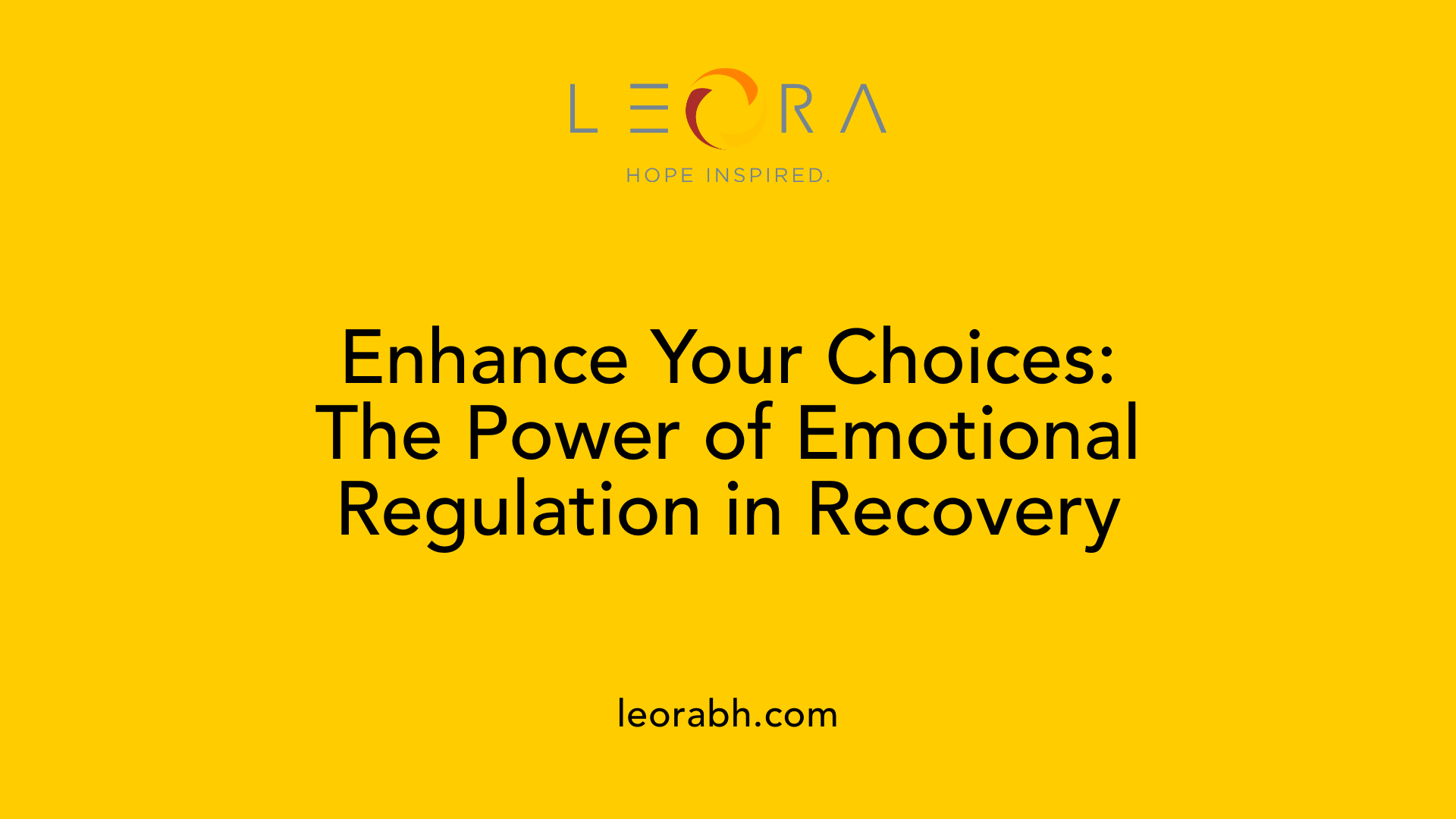
How does emotional regulation contribute to better decision-making?
Emotional regulation plays a significant role in improving how we make choices. When individuals develop skills to manage their emotions, they are less likely to react impulsively or angrily, especially in stressful situations. This ability to control emotional responses prevents automatic reactions that might lead to poor decisions.
Managing emotional reactivity helps people pause and think before acting. For example, instead of responding with frustration during a conflict, a well-regulated person can respond calmly and thoughtfully. This creates space for consideration of the broader context and potential consequences.
Furthermore, emotional regulation reduces feelings like anxiety, jealousy, or fear that can cloud judgment. When these emotions are under control, individuals tend to make choices based on reason and long-term goals rather than temporary emotional whims.
In addiction recovery, these skills are especially important. They enable individuals to recognize emotional triggers, such as stress or cravings, and respond in ways that support sobriety.
Ultimately, emotional regulation acts like a tool that transforms emotional responses into more thoughtful and resilient decision-making. It turns emotions into allies for making healthier choices, fostering better relationships, and navigating life's challenges with greater clarity.
Linking neurobiology of emotion regulation and decision-making in addiction
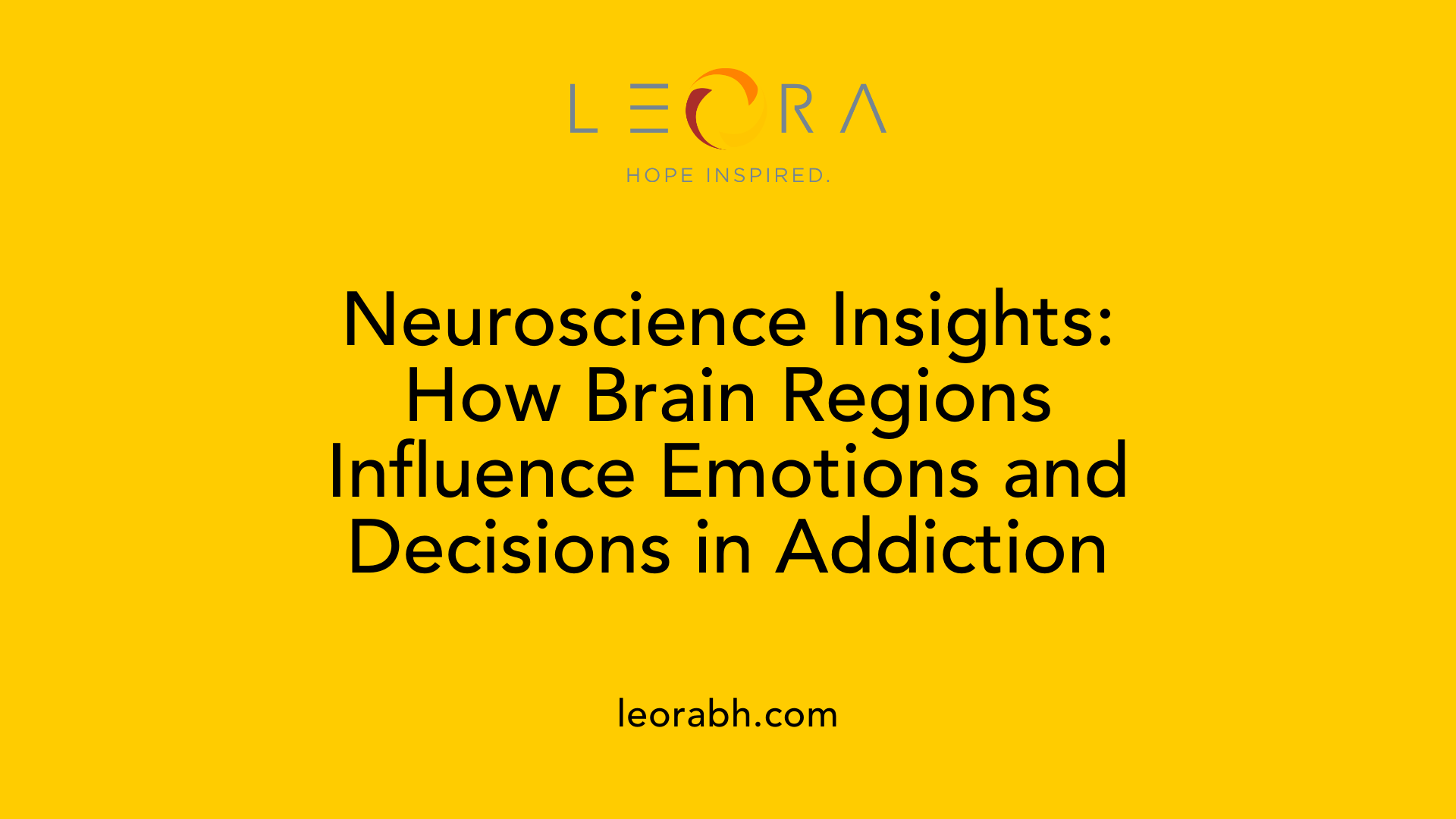
What role does the prefrontal cortex play in cognitive control?
The prefrontal cortex (PFC) is vital for managing emotions and making decisions. It includes regions such as the dorsolateral PFC (dlPFC), ventrolateral PFC (vlPFC), medial PFC (mPFC), and anterior cingulate cortex (ACC). These areas work together to help regulate emotional responses, especially during stressful or triggering situations. In individuals with substance use disorders (SUDs), the PFC often shows impaired functioning, which affects their ability to control impulses and make rational choices.
Neuroimaging studies reveal that successful emotion regulation involves increased activity in the PFC, which helps suppress exaggerated emotional reactions. When people employ strategies like cognitive reappraisal, these regions become more active, reducing emotional intensity and preventing impulsivity. However, in addiction, this regulation process is compromised due to neuroadaptations caused by chronic drug use, impairing decision-making and heightening relapse risk.
How does the amygdala influence emotional responses?
The amygdala plays a crucial role in processing emotions, particularly fear, anxiety, and stress. It is part of the limbic system and responds rapidly to environmental cues, signaling danger or reward. In individuals with SUDs, the amygdala tends to become hyperactive, especially in response to drug-related cues, leading to heightened cravings and emotional reactivity.
This hyperactivity results in exaggerated emotional responses, such as intense anxiety or irritability, which can undermine self-control. The amygdala's overactivation also hampers the PFC's ability to regulate emotions effectively, creating a cycle where emotional stimuli trigger substance-seeking behaviors. Neuroimaging studies show that during craving episodes, there's increased activity in the amygdala, highlighting its role in relapse risk.
What insights do neuroimaging techniques provide into these neural circuits?
Neuroimaging tools like fMRI and PET scans offer valuable insights into how brain regions involved in emotion and decision-making interact. These studies show that in healthy individuals, there is a balance between the PFC and limbic areas like the amygdala, enabling effective regulation of emotions and sound decision-making.
However, in those with addiction, neuroimaging reveals dysregulation: decreased activity in the PFC and increased activity in the amygdala and ventral striatum. These alterations highlight the neural basis for increased impulsivity, poor judgment, and emotional dyscontrol seen in addiction.
Furthermore, neuroimaging studies expose that neural circuits governing reward processing and emotional regulation are structurally and functionally altered in addiction. Chronic drug use leads to neuroadaptations that strengthen the response to drug cues while dampening natural reward signals, often resulting in a dominance of emotional stimuli over rational control.
| Brain Region | Role in Emotion & Decision-Making | Impact of Substance Use | Neuroimaging Findings |
|---|---|---|---|
| Prefrontal Cortex | Cognitive control, regulation of emotions | Impaired control, impulsivity | Reduced activity, impaired connectivity with limbic regions |
| Amygdala | Emotional reactions, threat detection | Hyperactivation, heightened emotional responses | Increased activation during craving; exaggerated emotional responses |
| Ventral Striatum | Reward processing | Hedonic dysregulation, decreased natural rewards | Altered response to natural rewards; hyper-responsiveness to drug cues |
Understanding these neural mechanisms underscores the importance of therapies targeting emotional regulation. Techniques such as mindfulness, cognitive-behavioral therapy (CBT), and dialectical behavior therapy (DBT) aim to strengthen PFC functions and reduce amygdala hyperactivity, thereby improving decision-making and reducing relapse in individuals with SUDs.
Strategies and therapies to enhance emotional regulation during sobriety
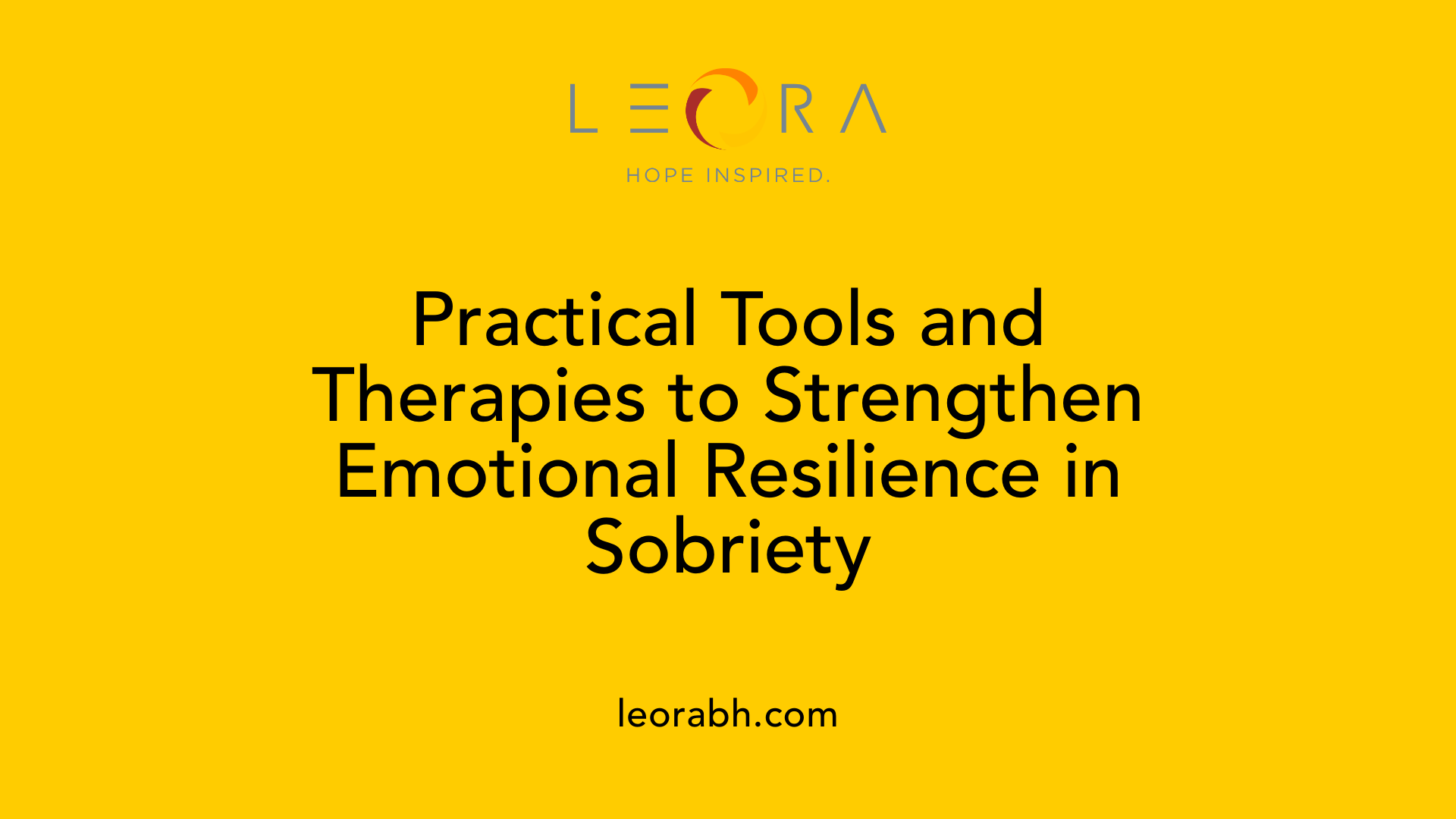
What techniques and strategies can be used for emotional regulation during sobriety?
Maintaining emotional balance is crucial for long-term recovery from substance use disorders. Several effective techniques can help individuals manage their emotions healthily and prevent relapse.
Mindfulness and meditation are foundational tools that foster greater self-awareness. These practices teach individuals to observe their thoughts and feelings without judgment, which can reduce impulsivity and reactive behaviors. Mindfulness helps people recognize emotional triggers early, allowing for thoughtful responses rather than hurried reactions.
Cognitive-behavioral therapy (CBT) and dialectical behavior therapy (DBT) are evidence-based therapeutic approaches that address emotional dysregulation. CBT focuses on identifying and challenging negative thought patterns that contribute to undesirable emotions, while DBT emphasizes skills such as emotion regulation, distress tolerance, and interpersonal effectiveness. Together, these therapies equip individuals with practical tools to manage intense emotions and urges.
Relaxation techniques, including deep breathing exercises, progressive muscle relaxation, and guided imagery, are effective in reducing physical tension associated with emotional distress. These methods can quickly calm the nervous system and restore emotional stability during moments of high stress or craving.
Engaging in expressive arts therapy—such as music, drawing, dance, or writing—provides a creative outlet for emotional expression. This form of therapy supports processing feelings, enhancing mood, and fostering self-understanding. Similarly, behavioral activation involves participating in meaningful activities or hobbies, which can boost positive emotions and distract from negative thoughts.
Building emotional resilience also involves developing skills like distress tolerance, which enables individuals to endure emotional pain without resorting to substances. Recognizing and labeling emotions accurately, practicing effective communication, and setting healthy boundaries further strengthen emotional regulation.
In combination, these strategies create a robust framework that supports emotional health, enhances coping abilities, and reduces the risk of relapse during recovery.
Effects of chronic stress on emotional control and decision-making in sobriety
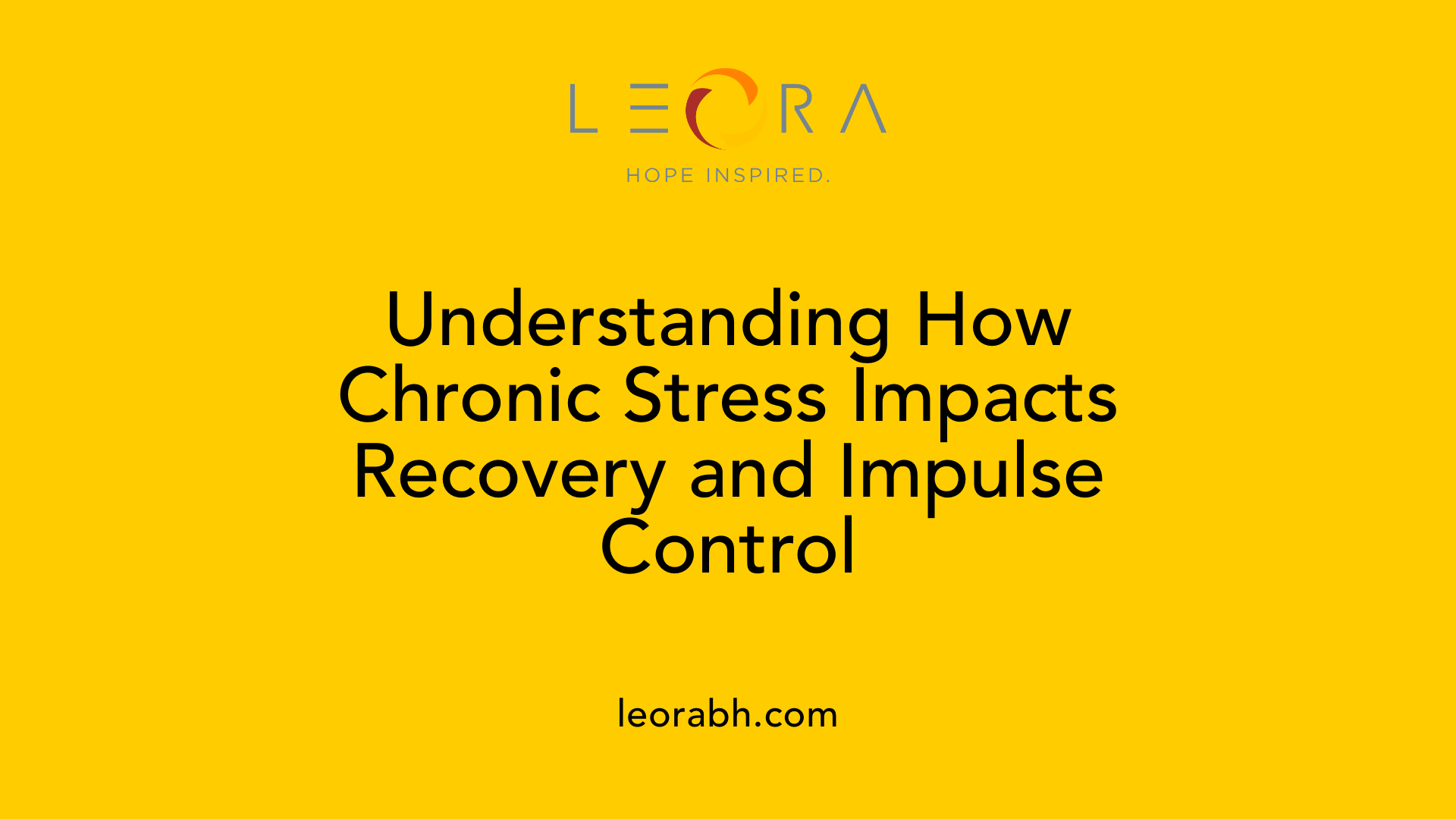
How does chronic stress affect emotional control and decision-making during recovery?
Chronic stress has a profound impact on emotional regulation and decision-making, especially during substance use disorder recovery. It induces neurobiological changes in critical brain regions such as the prefrontal cortex, amygdala, and hippocampus.
Prolonged stress leads to elevated cortisol levels, which can impair neurotransmitter balance and cause structural shrinkage in areas involved in self-control, memory, and emotional stability. This results in decreased impulse regulation and increased emotional reactivity.
Stress also heightens activity in limbic regions like the amygdala, which amplifies emotional responses such as anxiety and anger. Meanwhile, the functioning of the prefrontal cortex diminishes, compromising executive functions like judgment, impulse control, and decision-making.
These neural changes make individuals more sensitive to cravings and emotional pain, often prompting them to use substances as a form of self-medication. The combined effect heightens impulsivity, reduces rational thinking, and increases the likelihood of relapse.
Effective stress management approaches—such as mindfulness practices, cognitive-behavioral therapy (CBT), and lifestyle modifications—are essential. They help restore emotional regulation, support cognitive health, and foster healthier decision-making, all vital for sustaining recovery goals.
| Neurobiological Effect | Brain Region Affected | Consequences |
|---|---|---|
| Increased cortisol | Prefrontal cortex, hippocampus | Reduced impulse control, memory issues |
| Heightened limbic activity | Amygdala | Increased emotional reactivity |
| Neurotransmitter disruption | Entire brain | Mood instability, cravings |
Managing chronic stress effectively can preserve brain function and improve emotional resilience, making it easier to avoid relapse and maintain sobriety.
Building emotional resilience for enduring sobriety
The pathway to sustained sobriety is deeply intertwined with emotional regulation. Developing skills to recognize, understand, and modulate emotional responses enhances decision-making, reduces relapse risks, and supports long-term recovery. Therapies like mindfulness, CBT, DBT, and expressive arts, alongside managing chronic stress, are vital tools in fostering emotional resilience. By bolstering emotional intelligence and neurobiological health, individuals can navigate the emotional landscape of recovery more effectively, ultimately leading to a more stable and fulfilling sober life.
References
- Emotion regulation in substance use disorders: a systematic review ...
- Emotional Regulation In Recovery | Addiction Treatment
- The detrimental effects of emotional process dysregulation on ...
- Emotional Regulation in Addiction Treatment at Antrim, NH
- The Impact of Emotional Regulation on Addiction Recovery
- 7 Tips to Improve Your Emotional Regulation in Recovery | Willingway
- Ways Chronic Stress Affects Emotional Regulation in Addiction
- Emotional Intelligence in Recovery: Building Resilience & Wellness
- How Drugs and Alcohol Impact Decision-Making Power
- Understanding Emotional Sobriety and How To Achieve It
Find Your Inner Light
Related Articles
Schedule an Assessment
Leora Behavioral Health provides comprehensive treatment services, including ambulatory detox, mental health IOP, and SUD IOP, to support your journey toward lasting recovery.
Our caring team will guide you through the admissions process and create a personalized treatment plan tailored to your unique needs. We welcome walk-ins. If you or a loved one is struggling, reach out today. We’re here to help.


.svg)




.svg)
.svg)
.svg)
.svg)
